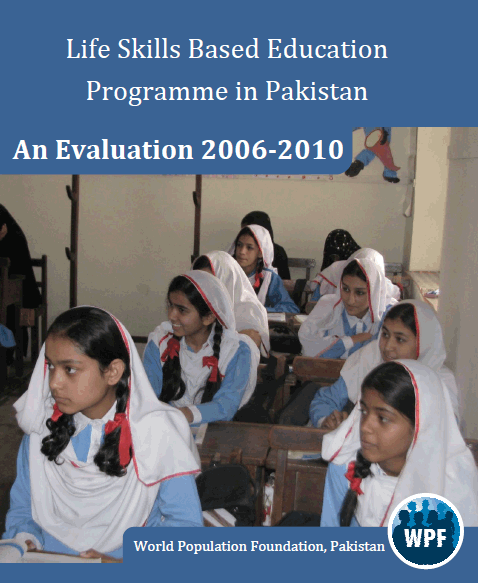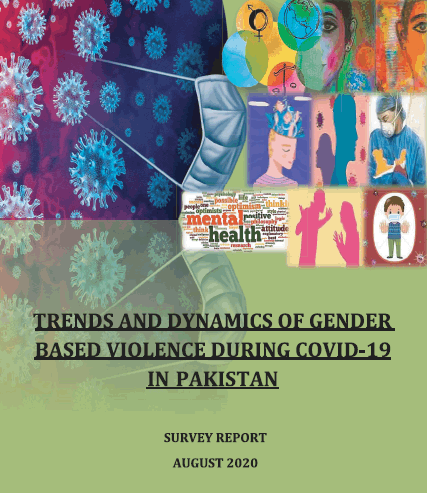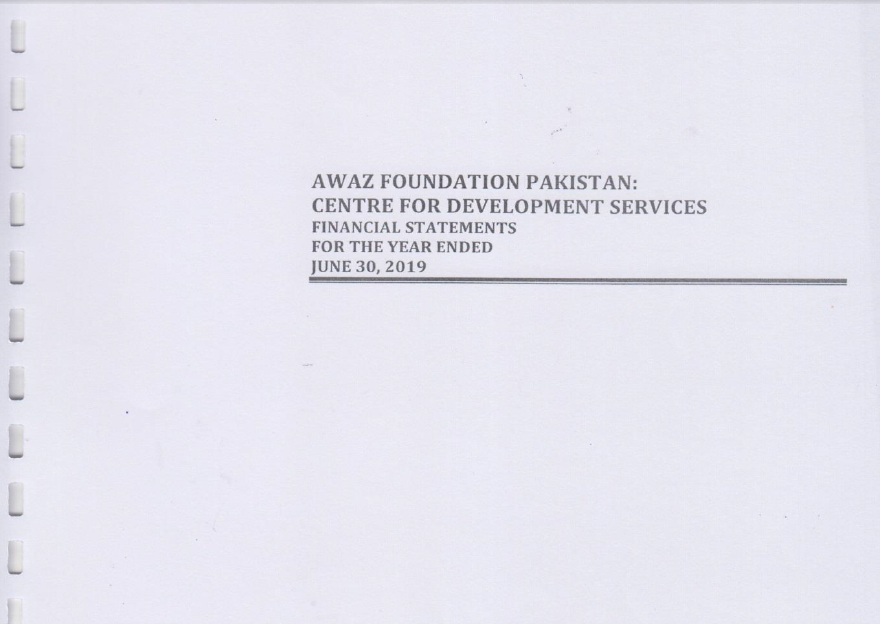The mission on which this report is based was possible due to the support of a number of people. It is not possible to thank each one of them by name. I would particularly like to thank the following:
• From DFATD, Nathalie Rainville and Anushka Shibchurn, who helped in developing the TORs, authorised the mission, and provided valuable feedback on the initial mission debrief and the contents of this report
• The CIIP team members, particularly its Chief of Party Mr. Jay Lal Shankar, for their continuous support throughout
• The staff of Takhleeq Foundation, in particular its Executive Director Mr. Mohammad Yaqub and Mr. Mohsin Solangi
• The staff of Awaz-CDS, in particular its Executive Director Mr. Zia Awan, Mr. Manzoor Hussain, and Mr. Imran Zahoor
• The government officials, including the Secretary Women Development Sindh, the UC secretaries, and civil society members, who took time out to meet the mission
• Private sector partners, in particular Ms. Afshan Khan Nanji, Social Investments Manager, Shell Pakistan, Mr. Muhammad Saifullah Malik, Project Coordinator, and Mr. Imran Azeem Manager Training & Development, Shell Livewire Trust; and Mr. Syed Hashim Ali, Financial services Sales Executive, and Mr. Sheraz Safdar, Regional Support Executive, Telenor, Islamabad
• The community members who met us in the broad based community meetings, and shared their views and experiences.
Author Archive: Ishfaq Khalil
Parwan Program Evaluation-1
This report is a summary of a baseline survey of selected civil society organisations (CSOs) in Pakistan’s Sindh and Punjab provinces. The survey was designed to address specific criteria and requirements outlined in the NWO WOTRO Call for Proposals in 2011. The data presented in this report was collected during in-depth consultations with participating CSOs in Islamabad and extensive field research that took place in September and October 2012. The conclusions given in the report are solely the responsibility of the authors. The NOW- WOTRO Call for Proposals consisted of three main components and each component is addressed in this report:
• An examination of three Southern Partner Organisations (SPOs) progress towards specific Millennium Development Goals (MDGs) and Good Governance: Section three of the report provides an in-depth analysis of the three selected SPOs, namely Lok Sanjh Foundation, Pakistan Fisherfolk Forum and Awaz CDS. These organisations were implementing projects that
addressed five of the eight MDGs (1, 3, 4, 5 and 6) and the theme of Good Governance.
• A review of the capacity development levels of the selected SPOs using the criteria set out by the synthesis team: One additional SPO, namely SCOPE, was added to the three SPOs for an assessment of institutional capacity development. Section four of the report presents the summary of this review.
• An assessment of the civil society strengthening carried out by the programme: This was based on a further set of criteria by the synthesis team and an established approach developed by CIVICUS. This analysis required an additional four SPOs to be chosen (see 5.1 for list of all chosen organisations). This is summarized in section five and a detailed explanation of the survey findings are presented in the six annexes of the report.
Parwan Final Country Report
This study was undertaken by Rutgers WPF as part of its UFBR program in order to measure the outcome after a period of two years of conducting activities related to this initiative. The main objective of undertaking this Outcome Measurement activity in Multan and Quetta was to provide the local teams there with an analysis of the progress in the various components of the program as well as to highlight the challenges and way forward.
The objectives of the UFBR program are given below:
1. Increased capacity of young people, women and marginalized groups to make safe and informed decisions on issues concerning relationships and sexuality, to deal with gender power relations and to seek quality, comprehensive SRHR services and information
2. Increased capacity of civil society organizations to manage SRHR education and services interventions
3. Increased quality of and access to comprehensive SRHR and SGBV services for young people, women and marginalised groups.
4. Policy dialogue maintained or increased in favour of SRHR in civil society organization’s countries and/or the region.
LSBE Evaluation Report 2006-2011
Life Skills Based Education Programme in Pakistan An Evaluation 2006 – 2010
An assessment of the relevance, effectiveness, efficiency, impact and sustainability of the life
skills based education (LSBE); a flag ship project of WPF (2006‐2010). The evaluation involved
an in depth analysis of the design, implementation, and sustainability, which will help in
devising future strategies for LSBE programme of the World Population Foundation, Pakistan.
Trends and Dynamics of Gender Based Violence during COVID-19 in Pakistan
The novel coronavirus that first emerged in Wuhan, China in December 2019 continues to impact the lives of people and is affecting all segments of the population across the world equally. Like in other countries, due to widespread of Covid-19 in Pakistan, owing to several restrictions imposed economically and socially, there is an exponential increase in the level of stress among people. Not only this, but it also has an adverse impact on mental health and overall behavior of people. Several studies across the globe have been conducted on prevalence of anxiety, depression and stress among masses during the period of COVID-19. Different researches have shown that people affected from psychological disorders during Covid-19 period shows symptoms like emotional distress, depression, stress, mood swings, irritability, insomnia, attention deficit hyperactivity disorder, post-traumatic stress and anger. According to UNDP, due to this increased stress caused by COVID-19, cases of violence especially gender-based violence and domestic violence have been raised exponentially at global level. Therefore, AwazCDS decided to conduct a survey to ascertain trends and dynamics of gender based violence during COVID-19 in Pakistan.
SDGs Citizens’ Watch Pakistan Program – Dossier
Pakistan’s response towards its own commitments at global level regarding socio-economic development and political empowerment of its citizens are often not fulfilled at the first place therefore the citizens’ confidence and trust on state institutions is weakening day by day. Since the failure in achieving these commitments do not have any major political implications due to the lack of awareness in masses, therefore the attention as well as investment on these commitments are not set as priorities. Global community is often made satisfied on the progress of these commitments with irrational and tactical excuses. Whereas some of the reasons are really based on logic like in case of Millennium Development Goals (2000-2015) it was said that most of them were not achieved due to war against terror (2000) deadly earthquake (2005) and devastating floods (2010 & 2014). However, the public opinion on the failure of these commitments including MDGs was neither sought by global community nor by the state institutions and civil society organizations. CSOs perspective on the failure of MDGs in response to the final report of Planning Commission of Pakistan was published by AwazCDS/ Pakistan Development Alliance while engaging only with well-informed citizens of Pakistan.
In order to make sure the inculcation and translation of global commitments in to the national priority agendas of the political fraternity as well as state institutions, sensitization of masses and their engagements in accountability processes at home is a must strategy and should be strictly adopted by all. Therefore, AwazCDS/Pakistan Development Alliance always tried to conceive and implement citizens’ centric initiatives. SDGs Citizens’ Watch Pakistan (SCWP) Program was the outcome of Citizens’ Led Mechanism for Voluntary National Review in Pakistan that has generated Citizens’ Voices on Pakistan’s first VNR process and progress on SDGs and was presented at United Nation’s High Level Political Forum in July 2019.
In continuation of such efforts SDGs Citizens’ Scorecard was launched across the country. Citizens’ Scorecard is known as the most effective means of citizens’ engagement for better governance and accountability. Therefore, we decided to use this tool to have better understanding and perception of citizens of Pakistan on the progress of SDGs after the completion of almost first five years of our commitment on agenda 2030 for social transformation. The SDGs Citizens’ Dossier is comprised of results attributed from country’s first ever SDGs Citizens’ Scorecard. This Dossier is a remarkable resource for Parliamentarians, policy makers, academics, private sector and CSOs. The UN agencies and other global and regional institutions and alliances may also refer to this document to have first hand information as well as citizens’ voices on the compliance and progress on commitments made by governments. Details of this SDGs Citizens’ Dossier are also available at SDGs Citizens’ Dashboard @ http://sdgscitizenscorecard.pda.net.pk/
National Assessment of Ehsas Cash Grant Program-LNOB
COVID-19 outbreak was first time experienced in the Wuhan City of China at the end of December 2019. Different steps have been taken worldwide for the control of COVID-19. Even with less resources Pakistan also taken rigorous measures like designed special hospitals, laboratories for testing, quarantine facilities, awareness campaign and lock down to control the spread of virus.
According to the Ministry of Health, Government of Pakistan, the confirmed COVID-19 cases in Pakistan has risen to 277,402 as of 30 July.
Since the outbreak of Corona Virus, Ujala network1 under the aegis of AwazCDS-Pakistan decided to contribute in difficult economic and health pandemic period by running different awareness raising campaigns to educate communities on COVID-19. To provide the financial assistance to deprived segment of the society, Ehsaas Emergency Cash program was launched by the Prime Minister on April 1, 2020 in the context of the economic hardship being experienced by the vulnerable due to the ongoing coronavirus crisis. The financial help under the program was meant to help poor buy rations so that they don’t go hungry during lock down period. The program covered 12 million families; PKRs 12,000 per family was given and worth of PKRs. 144 billion were successfully distributed.
Other emergency responses were also designed, financed and implemented by many people in their private capacity as well as on behalf of hundreds of thousands of NGOs and other private sector organizations across the country.
In this regard AwazCDS-Pakistan and its 44 partner organizations working together in 44 districts across the country including A J & K and Gilgit Baltistan under its Ujala Program decided to divert its resources in to Ujala Corona Emergency Response Program. Apart from mass sensitization campaign through the display of 550 banners, 150 Op-eds’, 150 radio programs, Ujala Partners also did Tehsil level survey with 100 target group in each of their respective districts. The target group was comprised on Women headed families, Person with special abilities, Religious minorities and transgender community, the target group was initially planned with 25 persons against each category from each district. Therefore, altogether 4400 surveys were planned.
Finally, 44 Ujala partners carried out Tehsil level survey in their respective district headquarter to collect basic data on some of the basic indicators included information of Ehsas Cash Grant Program, its process and challenges faced by them. We also tried to understand how much vulnerable groups are aware from Corona virus, their economic challenges, status of behavioral changes, inclusion of most vulnerable groups of society and if elected representatives have played their role in educating and facilitating public. A comprehensive survey format was developed and a half day online capacity orientation on how to conduct the survey was given to all the district focal points of partner organizations.
Facts based booklet on RH&GBV-Balochistan2019
This fact based informative booklet is construed from a study based on primary data gathered from 10 districts of Balochistan that includes Quetta, Pishin,Noshki, Khuzdar, Nasirabad, Jaffarabad, Loralai, Lasbella, Sibi and Kohlu.The study reached out to three core groups, i.e. Adults (including parents, SRHR experts, media personnel, religious scholars, policy makers, transgender individuals and people living with disabilities who were 29years or above); Healthcare Providers and Young People (between the ages of 15 – 29 years).
The study aimed to investigate the knowledge, attitude and behaviors of the communities regarding Reproductive Health Rights and Gender Based Violence. Balochistan based booklet will give an idea on current situation and lead towards a more enabling environment in Pakistan at the levels of policy making and implementation; community acceptance, practice and implementation of SRHR through increased awareness among stakeholders from local government officials, media, religious groups, parents, school community, civil society organizations and parliamentarians.
Facts based booklet on RH&GBV-KP 2019
This fact b ased informative booklet is construed from a study based on primary data gathered from 10 districts of Khyber Pakhtunkhwa that includes Mansehra, Swat,Lower Dir, Kohat, Karak, D.I. Khan, Noshera, Peshawar, Mardan and Bannu. The study reached out to three core groups, i.e. Adults (including parents, SRHR experts, media personnel, religious scholars, policy makers, transgender individuals and people living with disabilities who were 29 years or above); Healthcare Providers and Young People (between the ages of 15 – 29 years).
The study aimed to investigate the knowledge, attitude and behaviors of the communities regarding Reproductive Health Rights and Gender Based Violence. KP based booklit will give an idea on current situation and lead towards a more enabling environment in Pakistan at the levels of policymaking and implementation; community acceptance, practice and implementation of SRHR through increased awareness among stakeholders from local government officials, media, religious groups, parents, school community, civil society organizations and parliamentarians.









